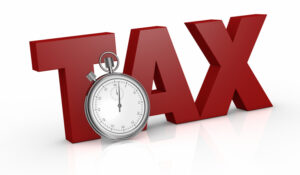Managing taxes efficiently is crucial for financial peace of mind, whether for individuals or businesses in Switzerland. Finding the best tax advisor or tax consultant can significantly transform your financial journey by optimizing tax savings, ensuring compliance with Swiss tax laws, and alleviating stress associated with filing deadlines and audits. This guide helps Swiss readers understand what a tax advisor is, why expert advice matters, and how to select the right professional for stress-free finances in 2025 and beyond.

What Is a Tax Advisor or Tax Consultant?
In Switzerland, the titles “tax advisor” and “tax consultant” are often used interchangeably but aren’t legally protected terms. These professionals specialize in tax law, filing, planning, and representation, serving both private clients and businesses.
- Tax Advisors primarily focus on advising clients on tax optimization, compliance, and strategic planning to minimize tax liabilities in a legally compliant manner.
- Tax Consultants may also represent clients before tax authorities and courts, provide comprehensive tax consulting services, and assist with complex issues such as cross-border taxation, inheritance planning, and corporate taxation.
Unlike accountants, who may focus on bookkeeping and financial statements, tax advisors possess in-depth expertise in interpreting and applying current tax laws, as well as developing personalized tax strategies.

Why You Need the Best Tax Advisor in Switzerland
Swiss tax laws can be complex and vary significantly across cantons, making expert advice essential for:
- Maximizing Deductions and Credits: A knowledgeable advisor ensures you claim all eligible deductions, from pension contributions to investment-related tax relief.
Navigating Canton-Specific Rules: Different cantons have varying tax rates and exemptions. Advisors can optimize tax outcomes by leveraging local nuances.
Avoiding Costly Errors and Audits: The tax office expects accuracy. Professionals help identify correct reporting, avoiding penalties and late fees.
Providing Comprehensive Financial Advice: Beyond taxes, advisors support estate planning, business structuring, and wealth management aligned with your financial goals.
Supporting Expats and Cross-Border Taxpayers: Specialized advisors assist expatriates with dual tax filing obligations, treaty benefits, and international compliance requirements.
How to Find the Best Tax Advisor in Switzerland
1. Credentials and Experience
Seek advisors with recognized qualifications and a proven track record serving clients similar to you. Many top Swiss firms hold certifications from professional bodies, such as Treuhand Suisse, ensuring continuous education and adherence to ethical standards.
2. Transparent and Fair Pricing
A good tax advisor offers transparent pricing based on the complexity of your tax situation, not just your income level. Avoid firms that charge excessive fees without providing clear explanations of their services. Fair pricing models enable you to estimate costs upfront and avoid unexpected expenses.
3. Range of Services
Choose an advisor who shows a wide range of services tailored to your needs, from simple tax filing to complex tax planning, audit representation, and business consulting. For businesses, integrating accounting, payroll, and tax advisory services can be a significant convenience.
4. Reviews and Reputation
Check reviews, client testimonials, and rankings such as those by BILANZ or Chambers for top tax consultant in Switzerland. Word of mouth and recommendations from trusted contacts also help gauge reliability and quality.
5. Communication and Accessibility
Opt for advisors who communicate clearly, answer your questions patiently, and provide ongoing support throughout the year. Accessibility during tax season and beyond prevents last-minute stress and ensures issues get timely resolution.

Getting the Best Financial Advice for Your Business
Whether you run a startup, SME, or large enterprise, a tax advisor is essential for:
- Optimizing Business Structure: Choosing the right business entity (AG, GmbH, sole proprietorship) impacts taxes and liability.
Tax Planning and Cash Flow Management: Proactive advice helps avoid unexpected tax bills and optimizes working capital.
VAT and Cross-Border Compliance: Swiss tax advisors guide compliance with VAT regulations and international tax treaties.
Succession and Estate Planning: Advisors help align tax strategy with long-term business continuity plans.
How to Choose the Right One for You
Finding the perfect match involves:
- Defining Your Specific Tax Needs: Are you an individual, expat, business, or investor? Different profiles need different expertise.
Meet Potential Advisors: Arrange initial consultations to discuss your needs, assess their expertise, and evaluate your comfort level in communicating with them.
Check Their Knowledge of Swiss and International Tax Laws: This is especially important for expats and cross-border investors.
Ask About Technology: Modern advisors use secure digital platforms to simplify document submission and communication.
Confirm Support Beyond Filing: Good advisors add value with year-round planning, audit defense, and financial insights.
Conclusion
Finding the best tax advisor or tax consultant in Switzerland is a vital step towards stress-free finances and optimized tax savings. By understanding their role, evaluating credentials, considering pricing transparency, and seeking personalized service, you’ll secure a trusted partner for your financial success. Whether for personal taxes, business needs, or expatriate challenges, the right tax advisor equips you to confidently navigate the complex Swiss tax landscape—making 2025 your most financially organized year yet.